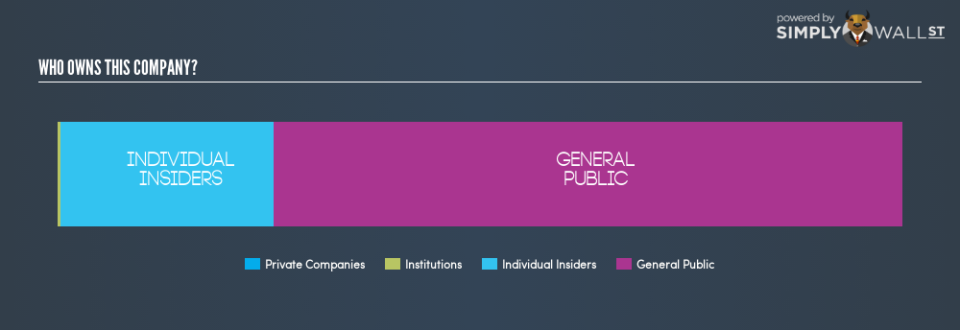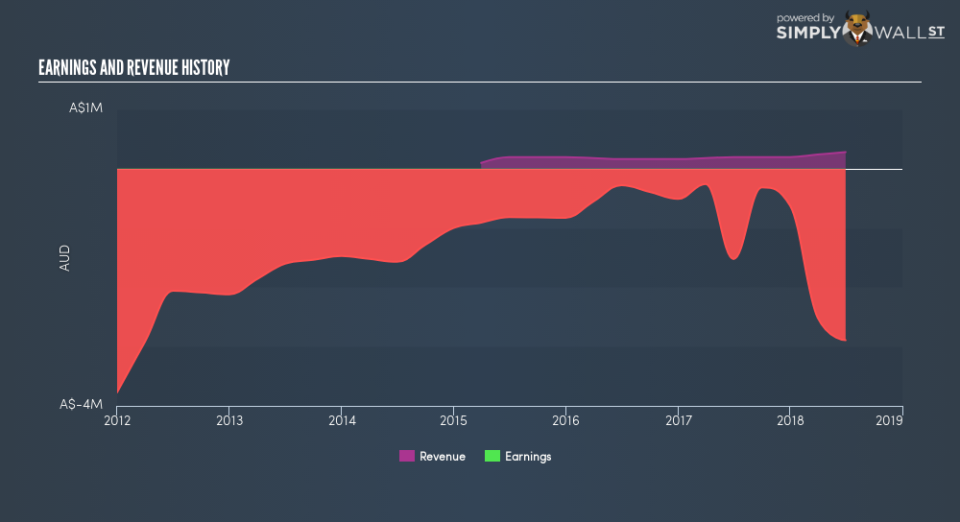Could Hastings Technology Metals Limited’s (ASX:HAS) Investor Composition Influence The Stock Price?

Every investor in Hastings Technology Metals Limited (ASX:HAS) should be aware of the most powerful shareholder groups. Institutions will often hold stock in bigger companies, and we expect to see insiders owning a noticeable percentage of the smaller ones. I quite like to see at least a little bit of insider ownership. As Charlie Munger said ‘Show me the incentive and I will show you the outcome.’
With a market capitalization of AU$140m, Hastings Technology Metals is a small cap stock, so it might not be well known by many institutional investors. In the chart below below, we can see that institutions don’t own many shares in the company. Let’s delve deeper into each type of owner, to discover more about HAS.
Check out our latest analysis for Hastings Technology Metals
What Does The Lack Of Institutional Ownership Tell Us About Hastings Technology Metals?
Institutional investors often avoid companies that are too small, too illiquid or too risky for their tastes. But it’s unusual to see larger companies without any institutional investors.
There could be various reasons why no institutions own shares in a company. Typically, small, newly listed companies don’t attract much attention from fund managers, because it would not be possible for large fund managers to build a meaningful position in the company. It is also possible that fund managers don’t own the stock because they aren’t convinced it will perform well. Hastings Technology Metals’s earnings and revenue track record (below) may not be compelling to institutional investors — or they simply might not have looked at the business closely.
We note that hedge funds don’t have a meaningful investment in Hastings Technology Metals. There is some analyst coverage of the stock, but it could still become more well known, with time.
Insider Ownership Of Hastings Technology Metals
The definition of company insiders can be subjective, and does vary between jurisdictions. Our data reflects individual insiders, capturing board members at the very least. The company management answer to the board; and the latter should represent the interests of shareholders. Notably, sometimes top-level managers are on the board, themselves.
Most consider insider ownership a positive because it can indicate the board is well aligned with other shareholders. However, on some occasions too much power is concentrated within this group.
It seems insiders own a significant proportion of Hastings Technology Metals Limited. It has a market capitalization of just AU$140m, and insiders have AU$35m worth of shares in their own names. I would say this shows alignment with shareholders, but it is worth noting that the company is still quite small; some insiders may have founded the business. You can click here to see if those insiders have been buying or selling.
General Public Ownership
The general public, who are mostly retail investors, collectively hold 74% of Hastings Technology Metals shares. With this size of ownership, retail investors can collectively play a role in decisions that affect shareholder returns, such as dividend policies and the appointment of directors. They can also exercise the power to decline an acquisition or merger that may not improve profitability.
Next Steps:
It’s always worth thinking about the different groups who own shares in a company. But to understand Hastings Technology Metals better, we need to consider many other factors.
I like to dive deeper into how a company has performed in the past. You can access this interactive graph of past earnings, revenue and cash flow, for free .
Ultimately the future is most important. You can access this free report on analyst forecasts for the company.
NB: Figures in this article are calculated using data from the last twelve months, which refer to the 12-month period ending on the last date of the month the financial statement is dated. This may not be consistent with full year annual report figures.
To help readers see past the short term volatility of the financial market, we aim to bring you a long-term focused research analysis purely driven by fundamental data. Note that our analysis does not factor in the latest price-sensitive company announcements.
The author is an independent contributor and at the time of publication had no position in the stocks mentioned. For errors that warrant correction please contact the editor at editorial-team@simplywallst.com.

 Yahoo Finance
Yahoo Finance 

